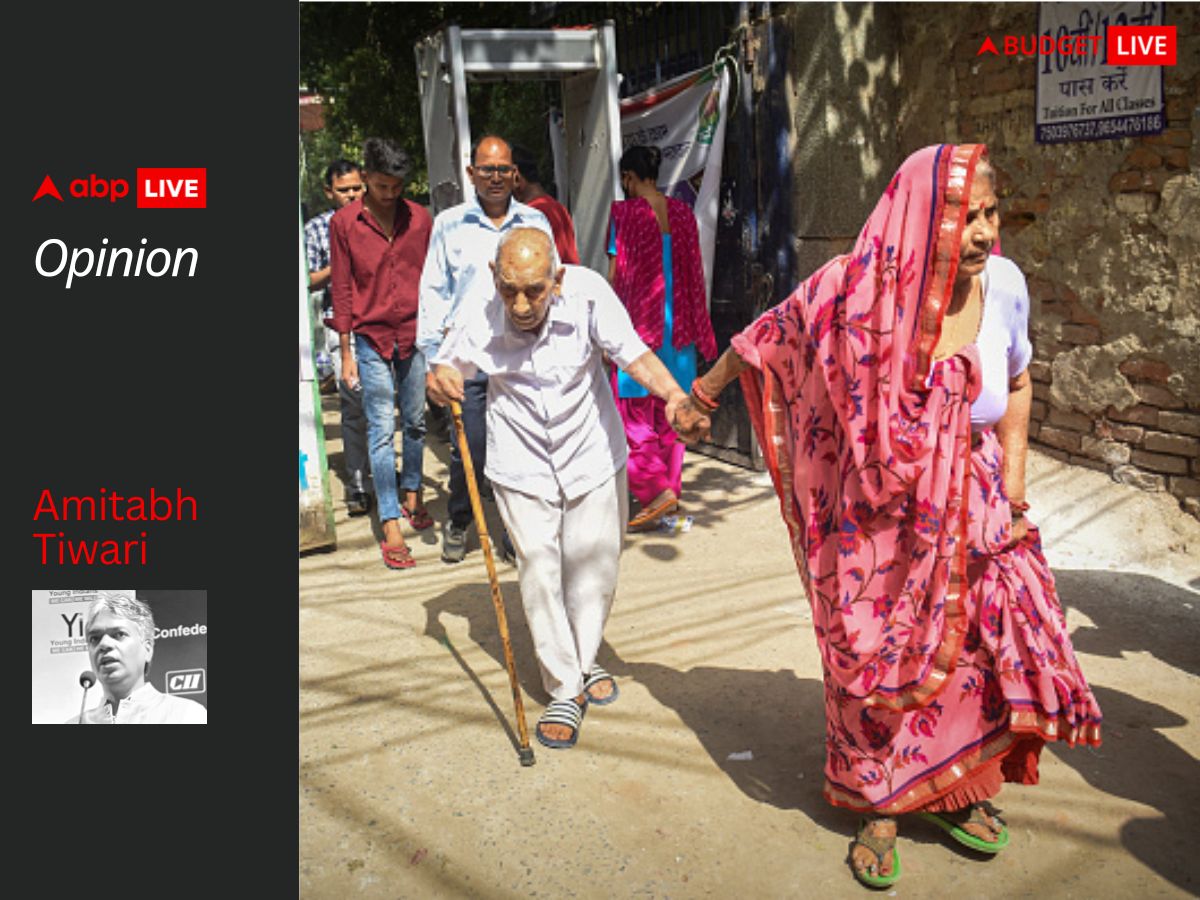Senior citizens account for more than 10 crore of the population of the country. More than 60 lakh taxpayers fall in the senior citizens category. On an average most of them have paid income taxes for 30 years or more. They contribute roughly Rs 50,000 crores in income taxes per year which is around 2 per cent of the Government of India’s (GoIs) total revenue receipts. Since all of them are eligible to vote, they are an important block, which can be ignored at the ruling party’s own peril. To ascertain the wish-list of senior citizens from the Budget, one needs to understand their finances.
Senior citizens' income mostle comes from:
- Interest income from Fixed / Recurring Deposits
- Pension income
- Dividend income from shares / mutual funds schemes
- Rental income from house / commercial property
The expenditure is likely to consist of:
- Rent (in case they don’t own a house)
- Medical insurance premium
- Medical expenses (OPD, full body check-up, critical illness)
- Travel (pilgrimage / foreign tours)
The basic demand of senior citizens is to reduce their tax burden which leaves more money in their hands to cover for their daily needs, medical and pilgrimage expenses. This can be met in a number of ways:
Option 1: Make all income of senior citizens tax exempt
It’s high time we give back to senior citizens as a society for their contributions in whatever small way we can. Income of senior citizens should be exempt for tax. This is likely to knock off Rs 50,000 crores of income tax (I-T) collections which is 2 per cent of total budget receipts of the government. It's not a big amount and manageable. They will continue to pay GST on goods / services consumed.
If this option cannot be implemented, then we can go for option 2.
Option 2: Increase exemption limit and allow more deductions
Increase exemption limit from Rs 3 lakh to Rs 5 lakh. This is likely to result in savings of Rs 10,000 per annum. Salaried senior citizens get a lump sum amount on retirement in the form of gratuity, leave encashment, provident fund etc. Many of them invest this money in fixed deposits because of the security aspect.
Increase interest income exemption from current Rs 50,000 to Rs 1 lakh. This is likely to result in savings of Rs 5,000 to Rs 15,000 per annum depending upon the marginal rate of taxation of individuals.
Introduce Pension income exemption up to Rs 50,000 per annum. The central / state government employees are also entitled to a monthly pension. Individuals who have opted for NPSS / LIC plans also receive a monthly pension.
Introduce Dividend income exemption up to Rs 50,000 per annum. Investment in shares / mutual funds could provide a one time in a year dividend income to people who have investment in the share market.
Introduce rental income exemption up to Rs 50,000 per annum. Some individuals who have commercial property or a second house could be earning rentals as well.
Allow Deduction for rent paid up to Rs 1 lakh as many senior citizens who don’t have their own houses live in rented property and do not get benefit of HRA.
Limit for 80C for senior citizens should be increased from Rs 1.5 lakhs to Rs 2.5 lakhs in line with demand of regular salaried individuals. Investment and return either in form of interest or dividend is their main source of income.
Deduction for health insurance premium should be doubled to Rs 1 lakh per annum. Deduction for health insurance premium should be doubled to Rs 1 lakh as the cost of insurance goes up significantly as one crosses 60 years of age. Medical inflation is at 13-15 per cent in India.
Deduction for medical expenses should be doubled to Rs 2 lakh per annum. Medical expenses are one of the highest expenditure items of senior citizens, hospitalisation expenses are very costly in private hospitals. (Section 80DDB). For people above 80 years of age health insurance is usually not available and this will provide relief to such senior citizens.
Deduction for pilgrimage should be allowed as a deduction for a couple up to Rs 1 lakh per annum in a block of two years. In all religions people at old age prefer visiting holy shrines. This is likely to provide a boost to domestic tourism. Many state governments have Teerth Darshan Yojana, a central deduction will be good.
The implementation of the above would effectively mean that senior citizens earning up to 10-15 lakhs will not have to pay any tax. This will be a huge relief for them especially when they have locked in FDs at a low rate of interest, and something which they surely deserve.
Changes in Senior Citizens Savings Scheme
In order to cover senior citizens from decline in interest rates, SCSS Scheme has been envisaged wherein the current rate of interest is 8 per cent return on 5-year bank / post office deposits of up to Rs 15 lakhs. This should be increased to Rs 25 lakhs per individual, so in effect Rs 50 lakhs for an elderly couple from current Rs 30 lakhs.
Senior citizens have high hopes from Budget 2023. Let’s see what FM has in her pitara for them!
Amitabh Tiwari is a SEBI-registered investment advisor.
[Disclaimer: The opinions, beliefs, and views expressed by the various authors and forum participants on this website are personal and do not reflect the opinions, beliefs, and views of ABP News Network Pvt Ltd.]


